Speed Mentoring Attendee Sign up
Registration is now open and is required for this incredible opportunity. Sign up to connect with up to six (6) mentors, across a variety of fields in the lysosomal community.
Review the Mentor Bios below and select up to six mentors to have a personal interactive discussion, ask questions, and engage in a focused dialogue for approximately 7 minutes with each mentor. The “mentor registration login and mentor selection grid” is available at the bottom of this page.
The Speed Mentoring Event is being held on Monday, February 3rd, from 16:30 – 17:30 PST. Following the 1:1 mentoring appointments, plan to attend the Be the Catalyst event from 18:00 – 19:30 to continue networking with the mentors and other attendees. Also available during the Speed Mentoring Event is the opportunity to get a complimentary, professional headshot, offered to all WORLDSymposium attendees.
The Registration Deadline to sign-up to meet with Mentors is December 31, 2024. Advance Registration is required. Due to space and scheduling requirements, there will be no onsite sign-up or registration for this event.
Upon registration, attendees will receive a confirmation email. Final details and appointment schedules will be provided in late January 2025.
Mentor List
Registered attendees will be meeting with these remarkable Mentors on Monday, February 3, 2025.
Qais Abu Ali, MD, FACMG
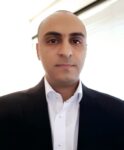
Dr. Ali is an ABMGG certified medical geneticist and rare disease drug developer with 20+ years of experience at the NIH/pharma/biotech/clinical practice/molecular diagnostics.
Dr. Ali designed, led and advised on many rare disease clinical development programs that achieved global regulatory and commercial approvals including ones for lysosomal storage diseases.
Dr. Ali founded California’s qRare International (www.qrareintl.com) and is regularly invited to provide expert opinion on international families with rare and undiagnosed genetic diseases.
Heather R. Adams, PhD
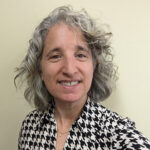
Dr. Adams is a Professor in the Department of Neurology and member of the BDSRA Center of Excellence at URMC. She is a pediatric neuropsychologist and child psychologist whose research entails neurobehavioral phenotyping, quality of life, adaptive function, and natural history of NCL disorders and other neuronopathic pediatric rare diseases.
Rare disease activities include past Chair of PCORI Rare Disease Advisory Committee, and working with the ISPOR Performance Outcome Assessment Emerging Good Practices Task Force.
Rebecca Ahrens-Nicklas, MD, PhD
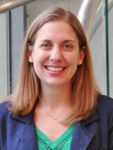
Dr. Ahrens-Nicklas is an Assistant Professor of Pediatrics and Human Genetics at The Children’s Hospital of Philadelphia and University of Pennsylvania. She leads the CHOP Gene Therapies for Inherited Metabolic Disorders Frontier Program. As a clinical geneticist, she cares for children with rare inherited inborn errors of metabolism. Her translational research laboratory focuses on developing novel molecular therapies for patients with neurometabolic disorders.
Kristina An Haack, MD

Dr. An Haack has been a healthcare industry professional for over 10 years. She is currently the Head of Rare Neurometabolic Disease Clinical Development, part of Specialty Care in Sanofi. She is a pediatrician by training, and specializes in Inherited Metabolic Disorders with focus on neurometabolic orphan diseases. Dr. An Haack has over 25 years’ experience in Academia, Research, Drug Development and Project Direction, and is the Medical Leader of Sanofi's Pediatric Medicines Network.
Christiane Auray-Blais, LLM, PhD
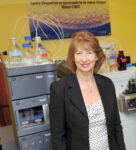
Dr. Auray-Blais is the Scientific Director of the Provincial Neonatal Urine Screening Program for hereditary metabolic disorders in Sherbrooke, Quebec. She holds a master’s degree in health law, a Ph.D. in radiobiology from the Université de Sherbrooke, and postdoctoral studies at Duke University Medical Center, NC. She is the Scientific Director for the Waters-CHUS Expertise Centre in Clinical Mass Spectrometry; and is the principal investigator on various LSD studies: Fabry disease, Gaucher disease, mucopolysaccharidoses, etc.
Manny Bamgbade, PharmD, MBA

Dr. Bamgbade is the Director of Global Marketing at Amicus, leading the strategic development of marketing campaigns, messaging, and external engagement. He has expertise in marketing specialty products that address complex, unmet medical needs.
He is driven by a passion for translating intricate scientific data into impactful communications, making them more accessible and understandable to diverse audiences.
Manny’s dedication to innovation and improving patient outcomes continues to fuel his commitment to the rare disease community.
Brian Bigger, PhD
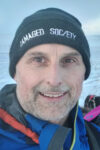
Dr. Bigger is head of the Bigger lab, which develops lentiviral ex vivo and AAV gene therapies for childhood dementias with two clinical trials underway in Manchester, and was the first to show the role of the inflammasome in neurodegeneration in lysosomal diseases. Dr. Bigger was a co-founder of Orchard Therapeutics and past Chairman of the European Study Group for Lysosomal Diseases.
Elizabeth Braunlin, MD, PhD
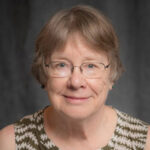
Dr. Braunlin is a pediatric cardiologist with special focus on MPS and other lysosomal storage diseases. Since 1983 she has evaluated >200 individuals with MPS who have undergone BMT or ERT. Dr. Braunlin also follows patients with Fabry and Pompe diseases. She is a basic scientist with interest in the cardiac features of MPS mice, their underlying pathophysiology and the effects of novel therapies to improve current outcomes of treatment.
Danielle Dong, ScM, CGC
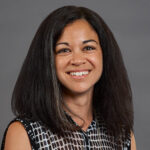
Danielle is the Global Medical Scientific Advocacy Lead, Rare Disease at Sanofi. She focuses on multi-stakeholder engagement and advocates for sustainable solutions in the generation and interpretation of rare disease evidence. She is the co-chair of the Patient Centered Outcomes Research Institute (PCORI) Rare Disease Advisory Panel. She previously worked in both US and global operations of the LSD Registries at Genzyme and Sanofi. Danielle is a certified genetic counselor with clinical and research experience.
Maria Fuller, PhD
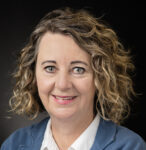
Professor Maria Fuller is a Clinical Scientist specialising in biochemical genetics and leads the National Referral Laboratory within the state-wide public pathology service in South Australia. The laboratory provides a national diagnostic service for lysosomal disorders and has a long-standing interest in improving the efficiency and accuracy of diagnosis. Maria has a conjoint academic appointment with the University of Adelaide and enjoys supervising post-graduate students.
Roberto Giugliani, MD, PhD
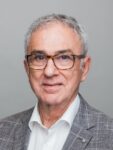
Dr. Giugliani is a Professor of Genetics at the Federal University of Rio Grande do Sul, Brazil. He is a medical geneticist who founded the Medical Genetics Service of Hospital de Clinicas of Porto Alegre. He co-founded and currently leads Casa dos Raros, and is Head of Rare Diseases at Dasa Genomics. He is also the Editor-in-Chief of the Journal of Inborn Errors of Metabolism and Screening, and Member of the Brazilian Academy of Sciences.
Ozlem Goker Alpan, MD
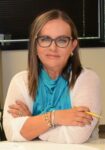
Dr. Ozlem Goker-Alpan is the founder and president of LDRTC, a non-profit organization focusing on Lysosomal Disorders and other rare diseases. She is dedicated to providing individualized care and treatment for patient. She also serves on the scientific advisory boards of multiple pharmaceutical companies and patient advocacy organizations.
Natalia Gomez-Ospina, MD, PhD
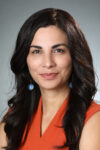
Dr. Gómez-Ospina, Assistant Professor at Stanford University and board-certified Medical Geneticist, focuses on using the hematopoietic system to deliver proteins to the brain, developing platforms to treat enzyme deficiencies. She has led preclinical studies on genome-edited cells for diseases like Mucopolysaccharidosis type I, Gaucher, and Krabbe disease. Dr. Gómez-Ospina has published in top journals and received prestigious awards, including the Genetics and Genomics Medicine Innovation Award from the American College of Medical Genetics and Genomics
Gregory A. Grabowski, MD
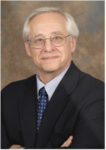
Dr. Grabowski is boarded in Pediatrics and Clinical Genetics, Clinical Biochemical Genetics, and Clinical Molecular Genetics. His has a continuing passion to discover and develop specific treatments for inherited diseases, particularly the LSDs. At MSSM and Cincinnati Children’s Hospital Research Foundation, he has trained over 50 faculty, several of whom are now department/division chairs and successful academicians. He is/has been a Consultant, CSO or Scientific Advisory Board member for several biotech companies.
Nadene D. Henderson, MS, LCGC
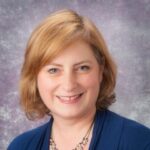
Nadene began working in LSDs in 1994, and has over 30 years working in rare diseases. Her career involves both clinical and research care for families impacted by these conditions. She was part of the FDA-approval for thirteen different therapies for LSDs (plus hypophosphatasia) and is a 2024 Sanofi TORCH awardee. Nadene's current focus is study coordination including gene therapy, investigational products, registries, as well as in newborn screening and training future health care professionals.
Jeanine Jarnes, PharmD, MSc Pharmacogenomics

Dr. Jeanine Jarnes is an Assistant Professor at the University of Minnesota Department of Pediatrics, adjunct assistant professor in Department of Experimental and Clinical Pharmacology at the College of Pharmacy and Graduate Faculty at the University of Minnesota. She serves as primary mentor for doctoral students and post-doctoral fellowship training programs, a clinical researcher, pharmcogenomicist, and clinical care provider for patients with lysosomal diseases. Her research focus includes: gangliosidoses diseases, and therapies for lysosomal diseases.
Priya Kishnani, MD
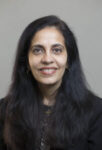
Dr. Kishnani is the Chen Family Distinguished Professor of Pediatrics, Division of Medical Genetics chief, and professor in the Department of Molecular Genetics and Microbiology at Duke University.
She has conducted groundbreaking clinical and translational research in the fields of lysosomal storage diseases and glycogen storage diseases and has been instrumental in the development of alglucosidase alfa and has shown commitment to understanding the natural history and evaluation of therapies of several LSDs and GSDs.
Terri L. Klein, MPA
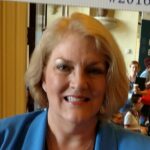
Terri Klein is President/CEO of the National MPS Society. She has worked in rare diseases for over 20 years. Her skills in fund development, advocacy, networking, and global perspectives have guided her organization in leading, navigating, and developing ground-breaking programs for rare disease. The MPS Society oversees a multi-million dollar budget for research, provides social work programming for patients diagnosed, in-person, and advocates at the Federal and State for rare disease legislation, including newborn screening.
Francyne Kubaski, PhD
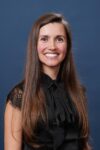
Dr. Kubaski is a staff scientist in the Biochemical Genetics Laboratory at the Greenwood Genetic Center. She has a PhD in Genetics and Molecular Biology (Udel), and a Post-doc in Genetics and Molecular Biology (UFRGS). Dr. Kubaski has been involved with research for inborn errors of metabolism, and most specifically lysosomal disorders, for over 10 years to apply tandem mass spectrometry for diagnosis, treatment monitoring, and newborn screening for these diseases.
Malte Lenders, PhD

Dr. Lenders studied Biology at the University of Muenster, Germany focusing on genetics and biotechnology. He started as the laboratory head for Prof. Eva Brand at the University Hospital Muenster 10 years ago, and was jointly responsible for research projects resulting in >40 peer-reviewed publications dealing with Fabry disease. His main research interests are inflammation, genotype-phenotype associations and experimental medicine with a focus on lysosomal storage disorders.
Marc C. Patterson, MD
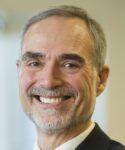
Dr. Patterson is a child neurologist with clinical and research experience in lysosomal disorders since his fellowship with Roscoe Brady at NIH. He has participated in multiple clinical studies, including those leading to the approval of miglustat for Niemann-Pick disease, type C by the EMA, and arimoclomol and N-acetyl-L- leucine by the FDA. He is Emeritus Professor of Neurology, Pediatrics, and Medical Genetics at Mayo Clinic. He will be Chief Medical Officer at IntraBio 1/1/2025.
Stefano Portolano, MD
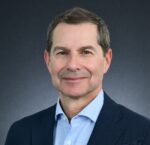
Dr. Portolano earned his MD and specialty in Endocrinology at Federico II University in Naples. He held academic roles at UCSF, focusing on autoimmune thyroid diseases, before joining Genzyme in senior roles across Europe and the US. He led Celgene’s launch in Italy and then served as Regional Head for Europe at Ultragenyx. In 2021, he became CEO of Azafaros, a biotech developing treatments for rare lysosomal and metabolic diseases with neurological involvement.
Carlos Prada, MD
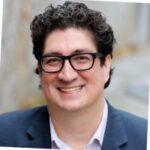
Dr. Prada is a physician scientist and division head for the genetics division at Lurie Children's Hospital. His work focuses in lysosomal storage disorders, neurofibromatosis, and inborn
errors of metabolism. Dr. Prada is also the director for the new gene therapy program at Lurie Children's. His research is in development of biomarkers and clinical trials for rare diseases.
Uma Ramaswami, MD
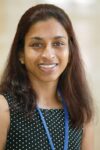
Dr. Ramaswami is a Consultant in Inherited Metabolic Disorders (IMDs), Clinical Lead at the Lysosomal Disorders Unit, Royal Free London Hospital and honorary Associate Professor, Genetics and Genomics Medicine, UCL. Her interests includes clinical research of the natural history and disease progression in IMDs. She has over 150 publications, National Institute of Clinical Excellence Topic Expert, Communicating Editor, Journal of Inherited Metabolic Disorders, personal tutor at UCL. England and European Touch Rugby referee and coach.
Biliana O. Veleva Rotse, PhD
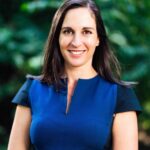
Dr. Biliana Veleva-Rotse, PhD serves as the Global Medical and Medicines Lead for Fabry Disease at Amicus Therapeutics. Since 2016, she has been working in Medical Affairs, helping to drive development of therapies that positively impact patient lives. She also oversees the Fabry Program, working with a diverse cross-functional team to effectively fulfil global health authority commitments while driving evidence generation efforts to address the unmet needs of people living with Fabry disease.
Raphael Schiffmann, MD, MHSc

Dr. Schiffmann is an expert on neurometabolic diseases. He currently is a Professor in the Department of Internal Medicine, Texas Christian University.
Dr. Schiffmann has been performing pre-clinical and clinical research on lysosomal diseases since 1991 with a special focus on the natural history, pathogenesis and therapy of Fabry disease, Gaucher disease and the leukodystrophies. He has published 288 peer-reviewed research articles and over 15 book chapters.
Bibliography: https://scholar.google.com/citations?user=ZRmqVIgAAAAJ&hl=en
Benedikt Schoser, MD
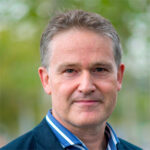
Prof. Schoser is a trained neurologist, neurophysiologist, neurointensivist, palliative medicine doctor, and muscle pathologist. He holds positions as Associate Professor, Senior Consultant Neurologist at the Friedrich-Baur-Institute, Department of Neurology at the Ludwig Maximilians University in Munich, Germany. His research centers on molecular mechanisms of muscle loss in patients of all ages with the aim of translating basic mechanisms into clinical reality. He has authored more than 350 peer-reviewed publications, focused on myotonic dystrophies and glycogenosis.
Ellen Sidransky, MD
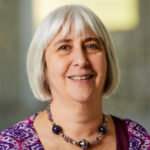
Dr. Ellen Sidransky, Branch Chief of the Medical Genetics Branch, is a pediatrician and geneticist in the NHGRI at NIH. She played a lead role in establishing the association between glucocerebrosidase and parkinsonism. Her work focuses on complexity in "simple" Mendelian disorders, lysosomal pathways in parkinsonism, and small molecule chaperone therapies for Gaucher and Parkinson diseases. She received the 2021 WORLDSymposium Roscoe O. Brady Award and the 2024 Breakthrough Prize in Life Sciences.
Bob R. Stevens

Bob Stevens is the Group CEO of a world-leading patient organization in "Rare," with a clinical trial support and patient-focused research sub division. He is the Chair of LSD Global, and a Rare Disease Dad of two MPSII boys who have been on this journey for 25 years.
Part of Bob's mission is to mentor the next generation of patient advocates and continue to work for a "Rare Life Lived Better".
Danilo A. Tagle, PhD, MS
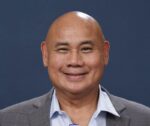
Danilo Tagle is currently Director, Office of Special Initiatives at NCATS, NIH where he leads efforts in developing innovative tools and technologies to greatly accelerate development of diagnostics and therapeutics. These programs involve public-private partnerships including partnerships with FDA, NASA and other agencies. Current programs are tissue chips , 3D bioprinting, automated chemistry using AI/ML, electronic nose technology for disease diagnosis, quantum technologies, and the isolation and analyses of exosomes for biomarker and therapy development.
Beth L. Thurberg, MD, PhD
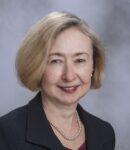
Beth Thurberg, MD, PhD served as Vice President and Head of Global Discovery Pathology at Sanofi Genzyme for 20 years. Her laboratory provided pathology expertise and analysis of preclinical studies and human biopsies from Phase 1 - 4 clinical trials, with emphasis in translational medicine and rare diseases. She is a world-recognized expert in lysosomal disease pathophysiology and was responsible for clinical trial pathology leading the development and FDA approvals of multiple enzyme replacement therapies.
Cynthia J. Tifft, MD, PhD
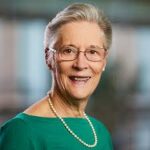
Dr. Tifft is the Deputy Clinical Director and Senior Clinician at NHGRI, engaged in gene therapy for GM1 gangliosidosis and natural history of glycosphingolipid disorders. She was formerly the Division Chief at Children's National Hospital where she diagnosed and cared for children and adults with a variety of LSDs.
Raymond Y. Wang, MD
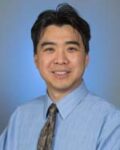
Dr. Wang is a physician scientist who provides clinical care, serves as a principal investigator for clinical trials, and oversees a translational research laboratory for lysosomal storage disorders, specifically those with neurodegenerative symptoms.
Chester (Chet) B. Whitley, PhD, MD
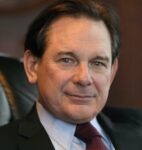
Chet Whitley, Professor, Advanced Therapies, University of Minnesota. First US trials of marrow transplants for lysosomal diseases. Coined “ultra-orphan disease”. First gene therapy for MPS condition (Hunter syndrome). Invented DMB dye-binding test for GAG. First pseudo-deficiency for MPS I. Tested first gene-editing in humans (zinc-finger nucleases). Co-inventor of PS Gene-editing System. Organized 1st International Symposium on MPS and Related Diseases (1988). led NIH programs Gene Therapy for Metabolic Diseases and Lysosomal Disease Network. Founded WORLDSymposium.
Ari Zimran, MD
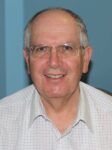
Dr. Zimran is the Founder/Director of the Gaucher Unit at Shaare Zedek Medical Center in Jerusalem, the world's largest GD center, where he is a Senior Physician. He has authored over 360 publications, and is a leading PI in GD clinical trials. He was the first to report the link between GD and Parkinson’s disease. He is also the Founder and CMO of AGYANY Pharma, developing innovative therapies for GBA1-related Parkinson’s and neuronopathic GD.
Registration Now Open
All attendees who sign up for this event will be contacted in late January, 2025 with their confirmed mentor assignments and final details for the Speed Mentoring Event at WORLDSymposium 2026.
Register and Login to access the mentor selection grid.
*All Speed Mentoring participants must be registered for and attend WORLDSymposium 2026 in-person to participate.
